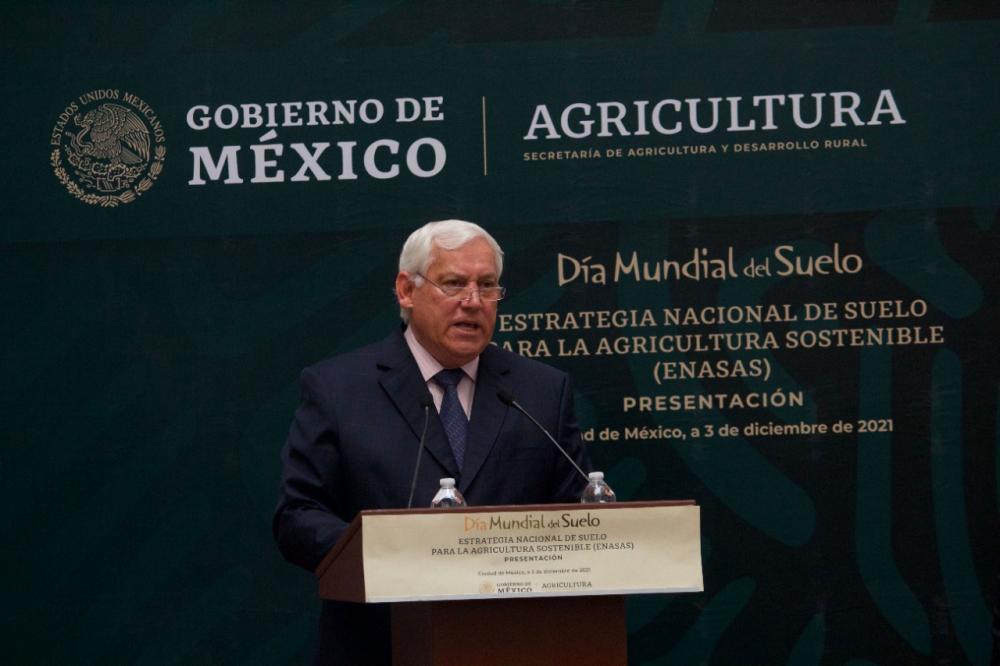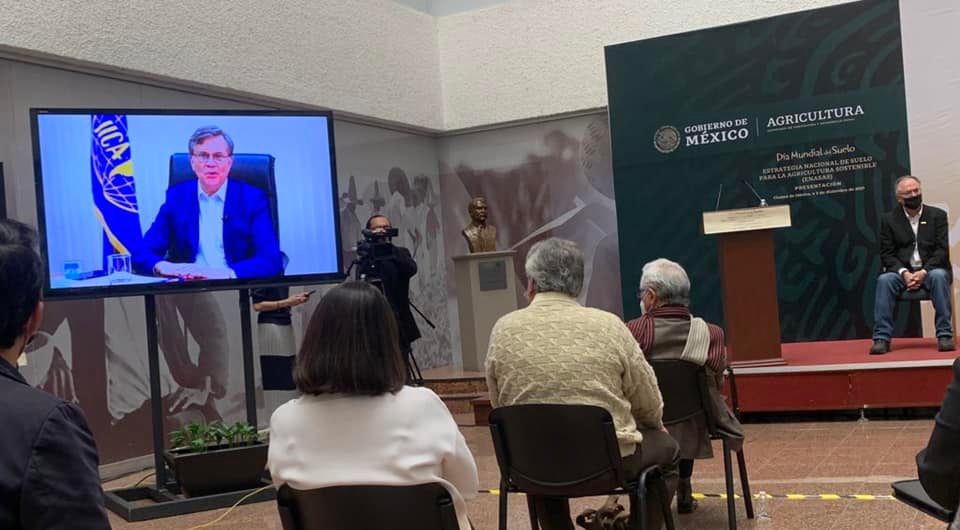IICA launches Living Soils of the Americas and Integrated Watershed Management Program in Mexico

Mexico City, 10 December 2021 (IICA). The Inter-American Institute for Cooperation on Agriculture (IICA) has launched the Living Soils of the Americas and Integrated Watershed Management Program in Mexico, part of the National Soil Strategy for Sustainable Agriculture (ENASA) being implemented by the Secretariat of Agriculture and Rural Development (SADER), and in collaboration with national and international organizations.
IICA and scientist Rattan Lal, Director of the Center for Carbon Management and Sequestration (C-MASC) at Ohio State University, joint Nobel Peace Prize laureate and winner of the World Food Prize, are spearheading the initiative. The objective is to contribute to soil health and promote good land management practices and incentives for transforming agricultural systems into ecosystems that sequester more carbon in the soil and thereby restore its quality.
At the launch, Rattan Lal highlighted the One Health concept, which includes human, animal and environmental health and their inseparable links with the health of soils, ecosystems and the processes that sustain life in our world. All play a key role in soil organic carbon sequestration, thus contributing to the health of the planet.
Working with institutions such as the National Institute for Forestry, Agriculture and Livestock Research (INIFAP) and the Trust Funds for Agricultural Development (FIRA), as well as the private sector, the first stage of the program will be implemented in the states of Zacatecas, San Luis Potosí, Guanajuato, Chiapas, and Tamaulipas.
This will make it possible to showcase the technologies involved in the productive recovery of soils and integrated watershed management, which include soil organic carbon sequestration and management practices that restore soil health, water management, biodiversity, and sustainable agricultural yields. Producers and the population in general will benefit from the results, as they will contribute to food security and the economic revitalization of the country.
In the case of soils, the regenerative agriculture approach will be adopted for a number of objectives and activities: ecosystem conservation, the lowering of greenhouse gas (GHG) emissions, soil organic carbon sequestration, conservation tillage, rainwater harvesting and filtration, the use of eco-efficient irrigation systems, the introduction of sustainable livestock practices, training for producers and technicians in green infrastructure, clean energy, associative enterprises, financing and risk management.
The integrated management of watersheds will be accomplished by means of the focused and interlinked management of the development of the territory as a whole, mindful of the fact that the climate crisis affects all areas of human life and therefore cannot be addressed with isolated or uncoordinated sectoral actions.
The IICA initiative was launched during an activity held to commemorate World Soil Day 2021 and mark the start of implementation of the National Soil Strategy for Sustainable Agriculture (ENASA) in Mexico, which is designed to promote sustainable food production practices and methods, and conserve and restore soils.

During the ceremony, the Minister of Agriculture, Víctor Villalobos Arámbula, explained that the purpose of the ENASA was to help halt and reverse the processes that negatively impact soils, thereby undermining agricultural productivity, food security and the well-being of the population, particularly that of the rural population.
He commented that the goal of the effort was to achieve healthy soils and thus help address climate change, water availability, biodiversity loss and other problems that pose a threat to the country’s sustainable development.
In a message to the participants, the Director General of IICA, Manuel Otero, observed that more than 40 percent of the soils in the Americas were degraded to some degree, with the situation in Mexico further exacerbated by severe drought conditions. This impacts food production, food security, economic growth, and poverty levels, especially among the most vulnerable groups in rural areas.
Otero stressed that soil recovery and conservation and efforts to foster sustainable production practices were essential to stay within safe climate limits and promote sound public policies, together with global agendas and multilateral agreements.
More information:
José Luis Ayala, IICA Technical Coordinator in Mexico.
jose.ayala@iica.int